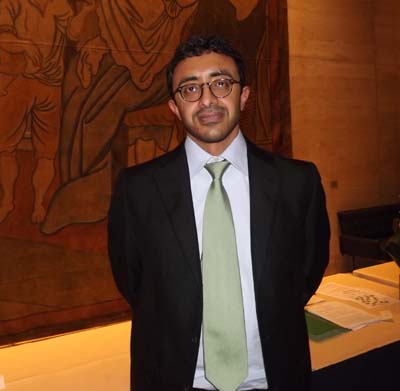A United Arab Emirates’ top diplomat on Wednesday came out in defense of President Donald Trump’s order temporarily barring citizens of seven majority-Muslim countries from entering the US.
The comments by Sheikh Abdullah bin Zayed Al Nahyan, the Gulf federation’s foreign minister, could serve to help bolster the administration’s assertion that the directive was not intended as a ban targeting Muslims.
The UAE minister opined that the US was within its rights to take what he said was a “sovereign decision” concerning immigration — the first such remarks in support of Trump’s move from the Gulf Arab region.
Sheikh Abdullah also voiced faith in the American administration’s assurances that the move, which temporarily bans most travel to the US from Iran, Iraq, Somalia, Sudan, Syria, Yemen, and Libya, was not based on religion and noted that most of the world’s majority-Muslim countries were not covered by the order.
“Thia is a temporary ban and it will revised in three months, so it is important that we put into consideration this point,” he said following talks with his Russian counterpart in the Emirati capital, Abu Dhabi.
“Some of these countries that were on this list are countries that face structural problems,” he continued.
“These countries should try to solve these issues … and these circumstances before trying to solve this issue with the United States.”
The Emirates is one of the US’s closest Arab allies and is part of the US-led coalition fighting the Islamic State group. It hosts American troops and warplanes taking part in the campaign against the Islamic State and is also home to a center backed by the US that aims to counter extremist propaganda online.
The seven-state federation prides itself on being a tolerant, forward-looking nation that nonetheless embraces its traditional Arab and Islamic heritage. The local population is dwarfed some four-to-one by foreign residents, many of whom are not Muslim.
America’s largest Arab export market, the Emirates also has commercial connections to the new US president.

